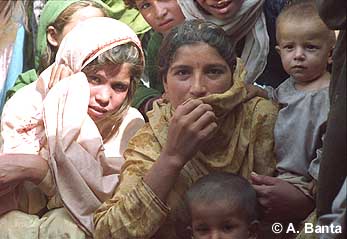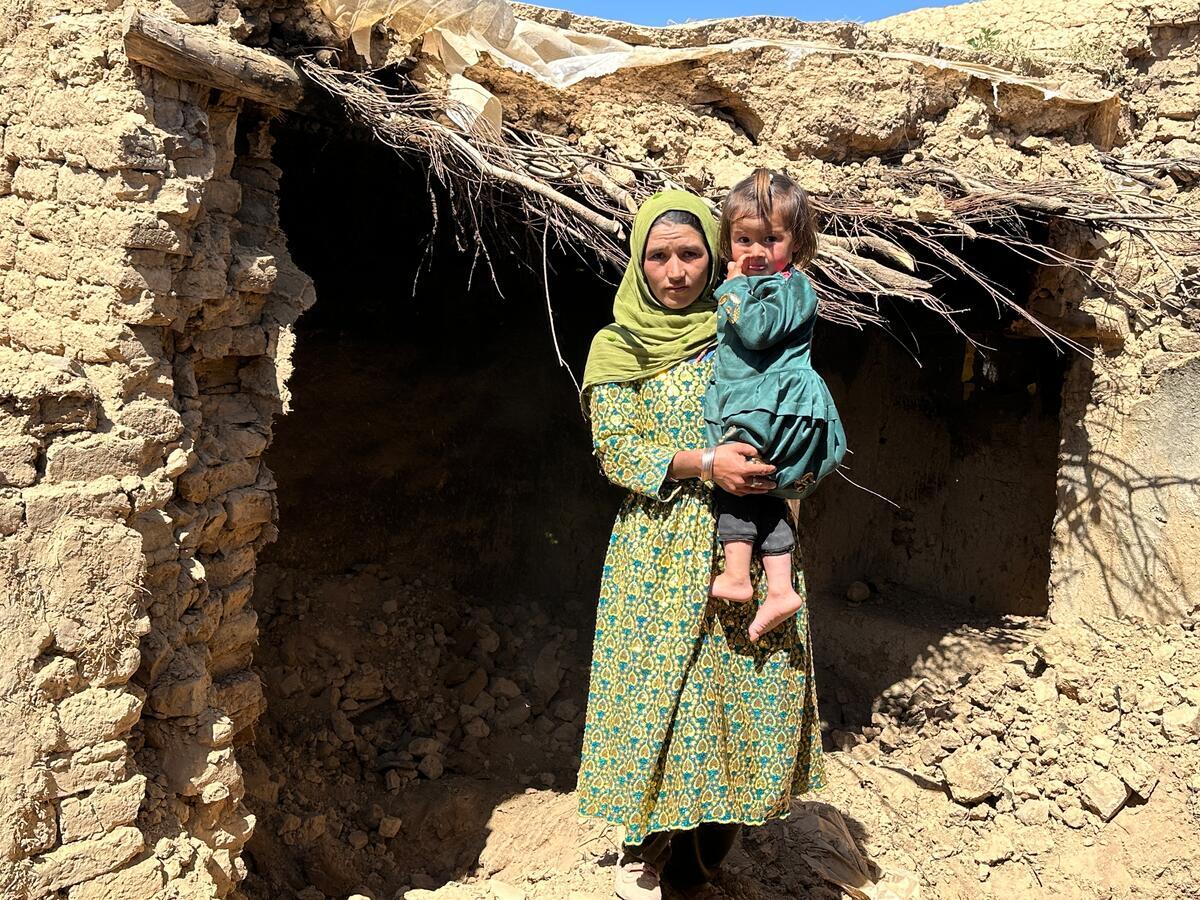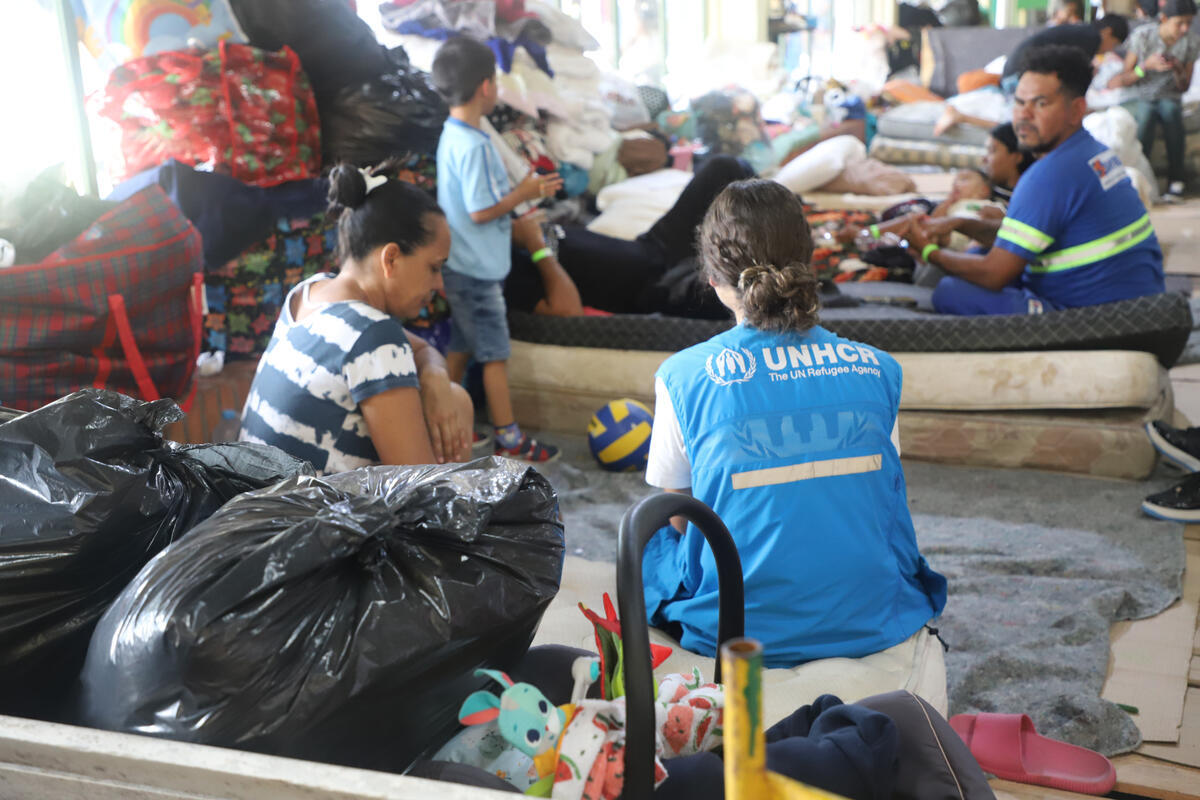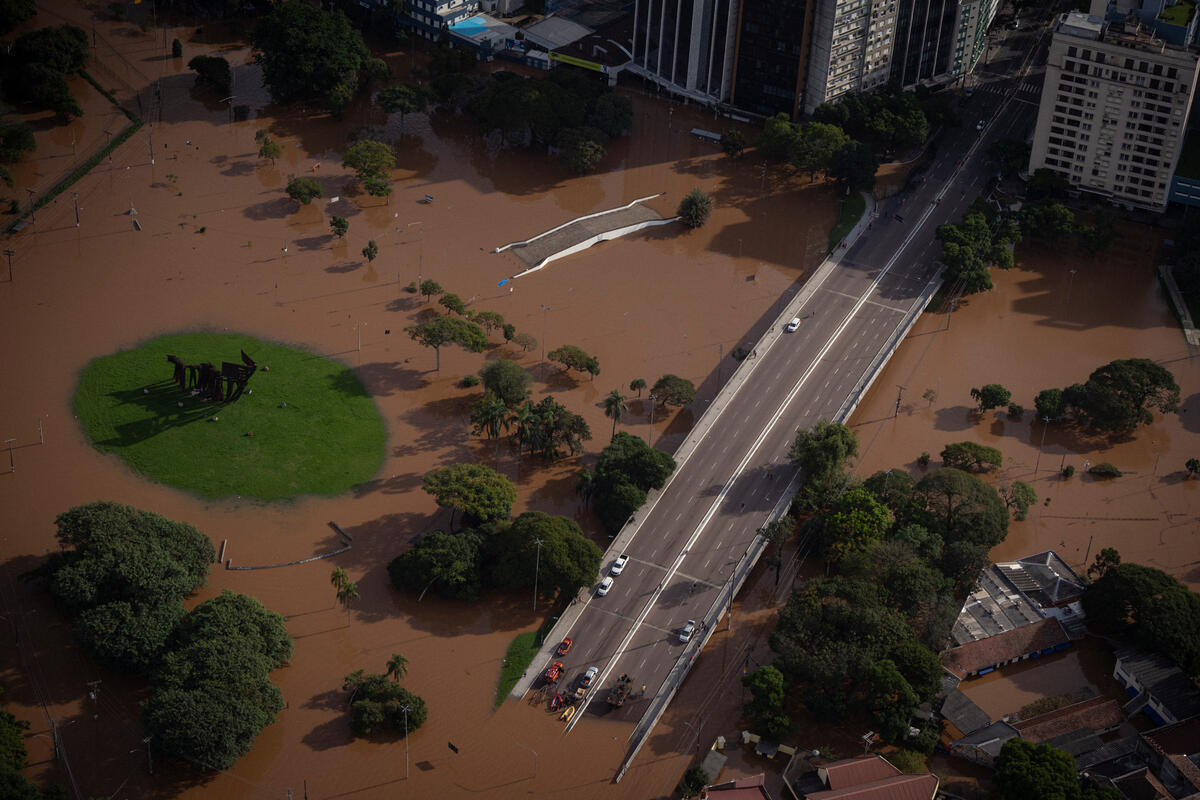Crossings by Afghans into Pakistan seen as erratic, with an increasing number turning to smugglers
Crossings by Afghans into Pakistan seen as erratic, with an increasing number turning to smugglers

GENEVA, 15 Oct., (UNHCR) - Afghan refugees are crossing into Pakistan at an erratic pace, while those with money are increasingly resorting to organized smuggling networks to help them flee, the U.N. refugee agency said Monday.
The agency estimated that an average of more than 1,000 people a day may have crossed into Baluchistan Province over the last 30 days. "Many thousands more may have tried to enter and failed," the agency added. "Their current whereabouts and prospects are unknown."
The agency also reported that three of its teams monitored the situation along the Iran-Afghanistan border over the weekend. "Scarce and unconfirmed reports from Afghanistan indicate no large movements of Afghans toward the Iran border," a statement said. "However, many have apparently left their homes in the wake of the air strikes, searching for safety in either the countryside or in the mountains."
"Fear of ad hoc recruitment by the Taliban is reportedly also a factor," the refugee agency added.
It said that with the borders officially closed, refugees with some money are resorting to organized smuggling networks to get them across, with the cost for such journeys rising almost daily. The agency estimated that a trip from the Taliban stronghold of Kandahar in southern Afghanistan to Quetta on the other side of the Pakistani border was about $100 for a family of six.
"UNHCR is particularly concerned about the very poor, as well as minorities," the statement added. "Minorities are almost all forced to resort to smugglers and are apparently being charged much more for everything, including transport, on both sides of the border."
The U.N. refugee agency said aiding new arrivals "remains extremely difficult," with many of them staying out of sight because they fear being deported back to Afghanistan. While some charitable organizations and others are providing food and clothing, the agency said it could be assumed that many families in Pakistan were living in "extremely difficult" circumstances.
Also Monday, UNHCR reported it had not received any cash contributions from donor governments since October 8. The U.N. agency has received some $12 million in cash contributions of the estimated $50 million needed to care for an initial planning figure of 400,000 new refugees in countries bordering Afghanistan. Donor governments have formally pledged an additional $11 million, but the money has yet to arrive.
"Funding shortages are now threatening UNHCR's ability to adequately prepare for potential population movements in the area," it said. "UNHCR urgently needs funds to enable it to continue preparations and the pre-positioning of relief supplies in case of any influx."
It said the funds could be transferred into Afghanistan itself in the future if the situation allowed it.
Regarding the number of refugees entering Pakistan through legal or informal routes in the Chaman area of Baluchistan Province, the U.N. refugee agency described the numbers as erratic. On October 9, for example, at least 600 people were believed to have crossed, while the next day the official border crossing was reportedly closed even for humanitarian cases. Yet on October 12 more than 1,000 people are thought to have passed through the Chaman crossing.
In North-West Frontier Province, which along with Baluchistan Province shares the border with Afghanistan, UNHCR said that one of its partner agencies had reported more than 1,000 people a day were also crossing into Pakistan through 13 mountain paths. "However, the security situation has prevented UNHCR from monitoring the border areas for much of the past week," the agency said.
Some Afghans are going in the opposite direction. Following a sharp drop in the weeks prior to the air strikes, the number of Afghans voluntarily returning to their country is increasing, the agency reported Monday, with 4,230 persons going back. Most return to join their families.
The U.N. agency said three campsites in Baluchistan Province appear viable to receive refugees, while in North-West Frontier Province it is trying to identify and prepare 15 sites that could house 150,000 people. Preparations at the campsites were disrupted last week for security reasons, with UNHCR officials unable to work at the sites and told to remain in their homes or hotel rooms.








